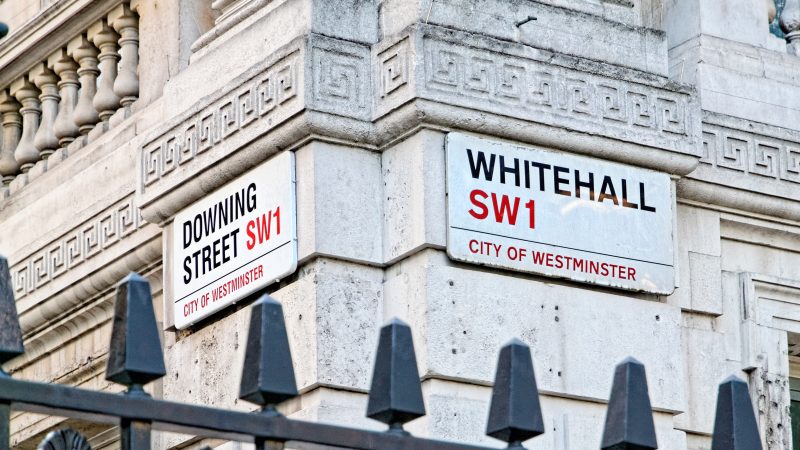
Sue Gray’s departure follows continued media headlines about the former chief of staff, including a controversy over reports she earnt more than the Prime Minister. But it was little noted at the time that such pay is less generous than for many senior civil servants, and anyone with comparable responsibilities in the private sector.
The government has also been criticised for making a small number of appointments into key civil service roles to support the work of the new government, such as a Director-General role to transform Whitehall’s digital functions and support AI implementation in public services. Appointments that were rumoured to have been made to avoid appointing a larger number of Spads.
On both counts, this confected outrage misses the woods for the trees. These decisions are simply the most visible symptoms of a system that isn’t adequately supporting ministers, and isn’t delivering value for money for taxpayers.
Valuing Spads
We can pay more for a Chief of Staff with relevant experience, and potentially save government billions in the long-run, or we can hope that a tiggerish band of 20-something ex-parliamentary staffers is a viable substitute.
Similarly, we can ensure the right people are in the right roles to drive forward ministers’ priorities, or leave them isolated and unsupported to avoid the media outcry of hiring more Spads.
The New Labour government’s more serious approach shows that things can be different. On their watch, the ceiling for Spad pay was around a third more generous than it is today: £214,000 in real-terms, compared to less than £145,000 in real-terms today.
Pay across the board for Spads was higher. And it showed. They were able to attract real experts into political roles – people like Michael Barber, who led the way on education standards, and Meg Russell, a constitutional scholar who helped reform the House of Lords.
READ MORE: ‘Is it the economy, stupid? Why politicians need to create a human-felt economy’
Pay made a big difference to ministers ability to recruit a more professional, high-functioning cadre of aides.
For its part, the new government should be commended for its decision to amend the Ministerial Code, quietly removing the cap of two special advisers per Secretary of State. It must now use this flexibility to match political support with the needs of departments.
It’s patently absurd that the Health Minister responsible for adult social care, primary care, community health and disabilities, is unable to appoint a Spad to help them in their brief. That the minister in the Department for Education overseeing adult education, the quality of higher education and technical qualifications can’t have a Spad. Or that the Minister for Border Security, who has one of the most challenging and politically risky briefs in government, cannot directly appoint anyone to their team.
As interviewees for a new Reform think tank paper on the topic argued, these junior ministers are “essentially left flying blind”, overseeing any number of small things that could eventually “become a massive thing and blow up”.
Making the system work
The government’s five missions, which it’s been clear will require a complete “rethink” of how we are governed – are another case in point where more political firepower could make a real difference, to foster genuine courage and risk-taking and coordinate efforts across government.
A former minister told Reform that missions are an “obvious place to say, ‘ok, we need extra support within departments to make sure that happens’”.
Rather than worrying about what the media will say, the government should look to the many Westminster-style systems – New Zealand, Canada and Australia – where greater flexibility is commonplace and treated as a hallmark of a grown-up model.
At the most recent count, the UK had 130 special advisers. In these countries, political aides number at least 400. In Canada, ministers simply receive a budget from government to hire political staff according to their own needs and preferences: something that would be a no brainer to the CEO of a big company, but anathema in Whitehall.
For Labour to succeed, they must press ahead with ensuring ministers are given every possible support needed to execute their goals, and ignore the short-sighted political wranglings that stand in the way of a better-functioning system.
- SHARE: If you have anything to share that we should be looking into or publishing about this story – or any other topic involving Labour– contact us (strictly anonymously if you wish) at [email protected].
- SUBSCRIBE: Sign up to LabourList’s morning email here for the best briefing on everything Labour, every weekday morning.
- DONATE: If you value our work, please donate to become one of our supporters here and help sustain and expand our coverage.
- PARTNER: If you or your organisation might be interested in partnering with us on sponsored events or content, email [email protected].




More from LabourList
Antonia Romeo appointed to lead civil service as new Cabinet Secretary
‘If Labour is serious about upskilling Britain, it must mobilise local businesses’
Stella Tsantekidou column: ‘What are we to make of the Labour Together scandal?’